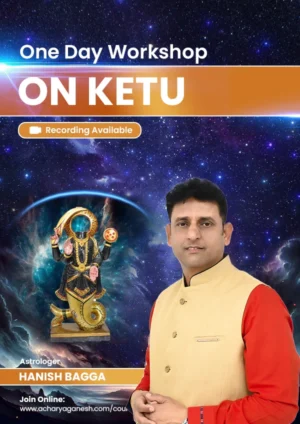Introduction to Modern horoscopes
Have you ever gazed up at the night sky and felt a connection to the cosmos? For thousands of years, humans have been doing just that,Modern horoscopes seeking meaning and guidance in the celestial bodies above. This practice, known as astrology, has captivated generations with its promise of insight into our personalities, relationships, and destinies. In this article, we’ll explore the fascinating world of astrological wisdom and how it has evolved across generations.
The Ancient Origins of Astrology
Mesopotamian Beginnings
The story of astrology begins in ancient Mesopotamia, where stargazers first began to map the heavens and attribute meaning to celestial events. These early astronomers laid the groundwork for what would become a complex system of divination and prediction.
Egyptian Contributions
The ancient Egyptians took this knowledge and ran with it, integrating astrological concepts into their religious and social structures. They associated their gods with celestial bodies and used the stars to predict the all-important flooding of the Nile.
Greek and Roman Influence
As knowledge spread, the Greeks and Romans added their own flavors to astrological practice. They developed the zodiac system we’re familiar with today and began to create detailed horoscopes based on the positions of planets at the time of a person’s birth.
Medieval Astrology: A Bridge Between Eras
During the Middle Ages, astrology found a place in royal courts and universities alike. It was used to predict everything from the outcome of battles to the best time to plant crops. This period saw the preservation and translation of ancient astrological texts, ensuring the survival of this ancient wisdom.
The Renaissance and Astrological Revival
The Renaissance brought a renewed interest in astrology, with many famous figures of the time, including Galileo and Kepler, practicing astrology alongside their scientific pursuits. This era saw astrology reach new heights of sophistication and popularity.
Modern Astrology: Evolving Traditions
Western Astrology
Today’s Western astrology is a blend of ancient wisdom and modern psychology. It focuses on personal growth and self-understanding, using the zodiac as a tool for introspection.
Vedic Astrology
Originating in India, Vedic astrology takes a more fatalistic approach, emphasizing destiny and karma. It uses a different zodiac system and is still widely practiced in South Asia.
Chinese Astrology
Chinese astrology, with its 12-year animal cycle, offers yet another perspective on celestial wisdom. It’s deeply ingrained in Chinese culture and has spread throughout East Asia.
Generational Shifts in Astrological Practice
Baby Boomers and Astrology
The Baby Boomer generation embraced astrology as part of the New Age movement of the 1960s and 70s. They popularized sun sign horoscopes and brought astrology into the mainstream.
Gen X’s Skeptical Approach
Generation X tended to view astrology with more skepticism, influenced by the rise of scientific rationalism. However, many still engaged with it as a form of entertainment or self-reflection.
Millennials and the Digital Age of Astrology
Millennials have spearheaded a resurgence of interest in astrology, driven by social media and apps that make astrological information more accessible than ever. They tend to view astrology as a tool for personal growth and community building.
Gen Z: Astrology in the Social Media Era
For Generation Z, astrology is deeply intertwined with online culture. Memes, TikTok videos, and Instagram posts have become popular ways to engage with and share astrological content.
The Science Behind the Stars
Astronomy vs. Astrology
While astronomy is the scientific study of celestial objects, astrology interprets the perceived influence of these objects on human affairs. It’s important to understand the distinction between the two.
Psychological Aspects of Astrological Belief
Psychologists have studied why people are drawn to astrology, finding that it can provide comfort, meaning, and a sense of control in an uncertain world.
Astrological Wisdom: Practical Applications
Personal Growth and Self-reflection
Many people use astrology as a tool for introspection, using their birth chart as a map for personal development.
Relationship Compatibility
Astrological compatibility is a popular way for people to understand and navigate their relationships, romantic or otherwise.
Career Guidance
Some turn to astrology for insights into their professional life, using it to identify strengths and potential career paths.
Critics and Controversies
Despite its popularity, astrology faces criticism from skeptics who point out the lack of scientific evidence for its claims. The debate between believers and critics continues to this day.
The Future of Astrology
As we look to the future, astrology shows no signs of fading away. Instead, it’s adapting to new technologies and changing social norms, finding new ways to remain relevant to each generation.
For interesting astrology-related videos, subscribe to us on Youtube
Conclusion
Astrology has come a long way from its ancient origins, evolving with each generation while maintaining its core appeal. Whether you’re a devoted believer or a curious skeptic, there’s no denying the enduring fascination humans have with the stars and their perceived influence on our lives. As we continue to gaze up at the night sky, we’re not just seeing distant balls of gas, but connecting with a practice that has captivated humanity for millennia.
Read Also: Horoscope Hype: Magazine Astrology Hidden Truths
FAQs
- Is there any scientific evidence supporting astrology?While astrology has not been scientifically proven, Modern horoscopes many people find value in its insights and use it as a tool for self-reflection.
- How does my birth chart differ from my horoscope?Your birth chart is a detailed map of the sky at the moment of your birth, Modern horoscop eswhile a horoscope is a general prediction based on your sun sign.
- Can astrology predict the future?Astrology is more often used for insight into personality and potential rather than concrete predictions of future events.
- How do different cultures approach astrology?Different cultures have developed their own Modern horoscopes systems, such as Western, Vedic, and Chinese astrology, each with unique characteristics.
- Is it possible to change your astrological fate?Many Modern horoscopes astrologers believe that while celestial influences exist, free will plays a significant role in shaping one’s life.































